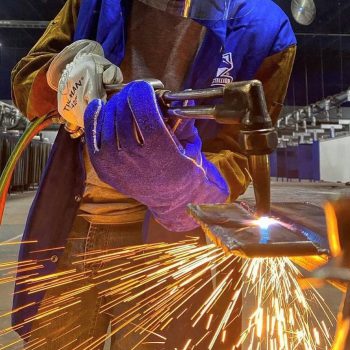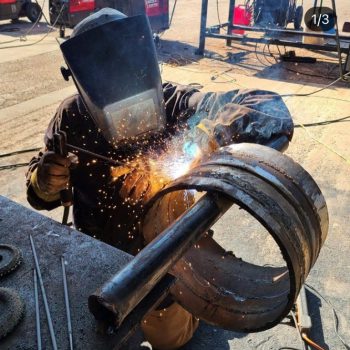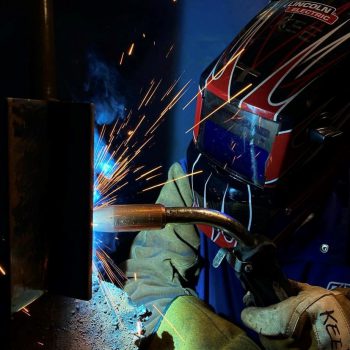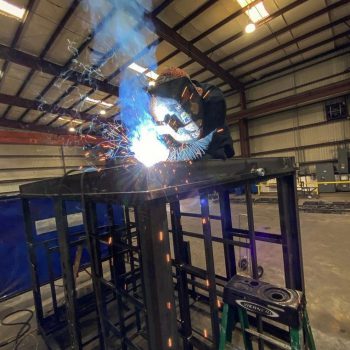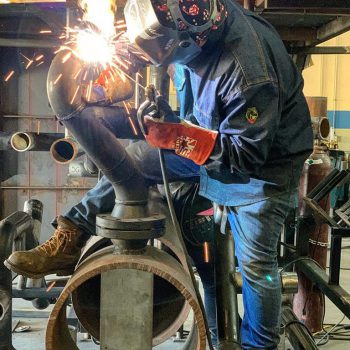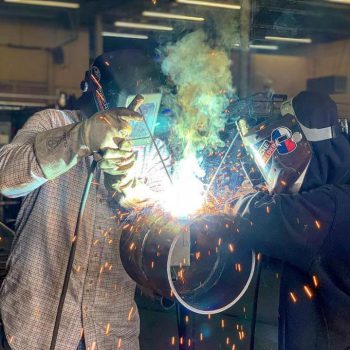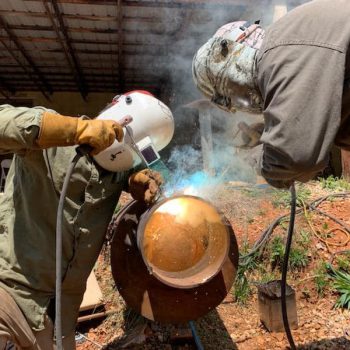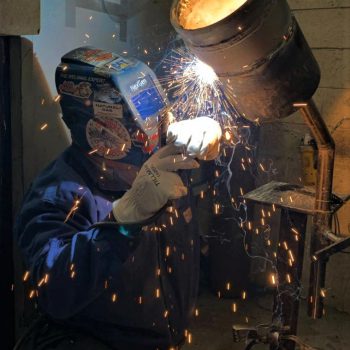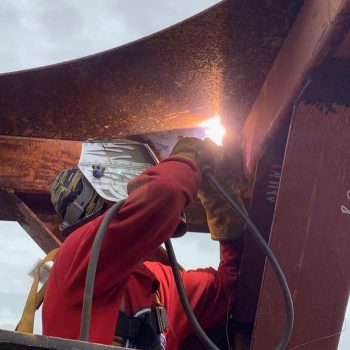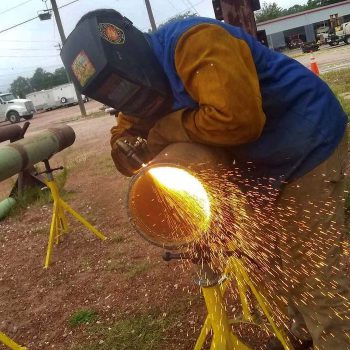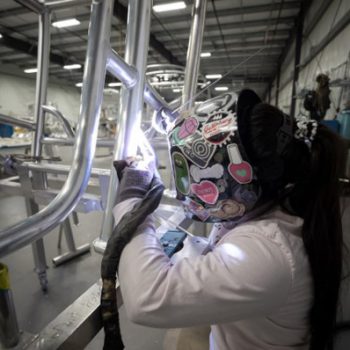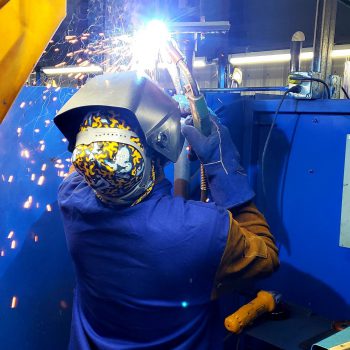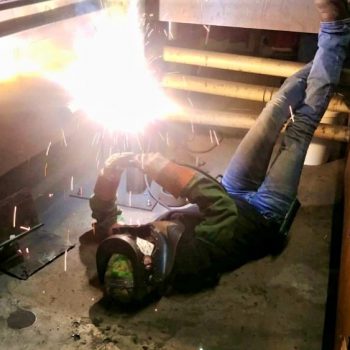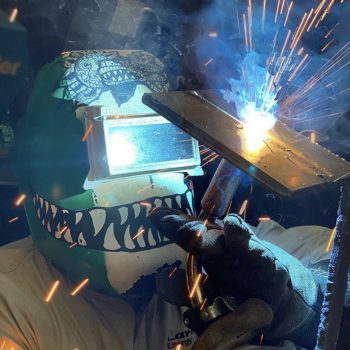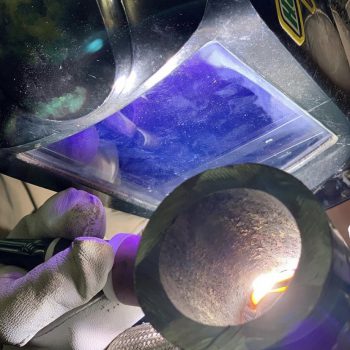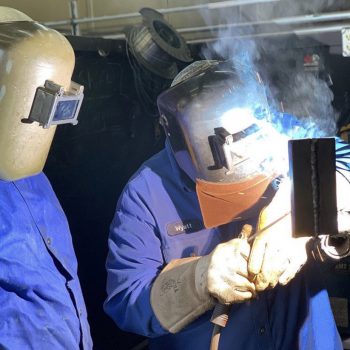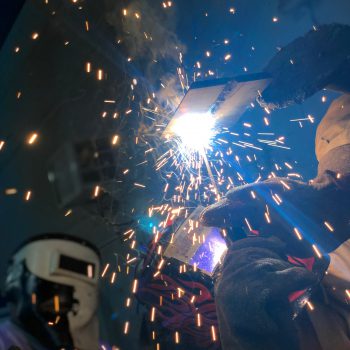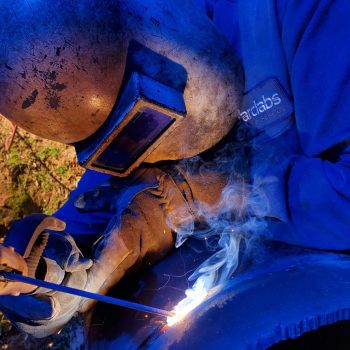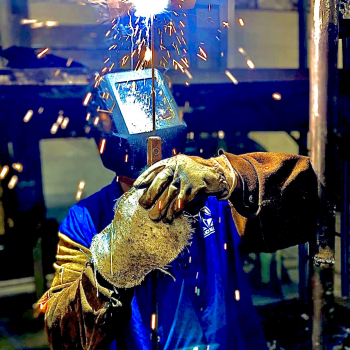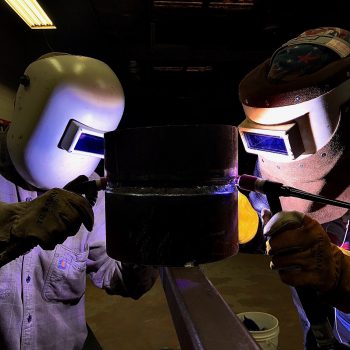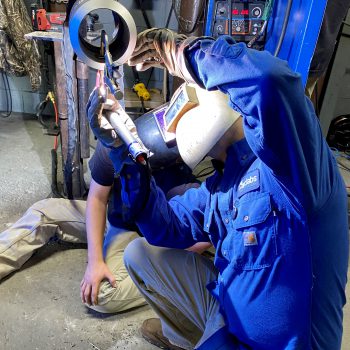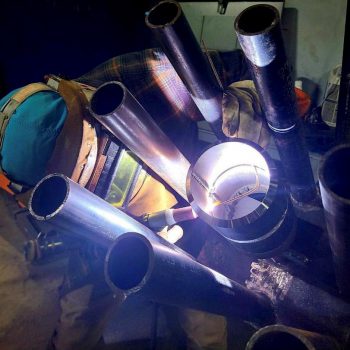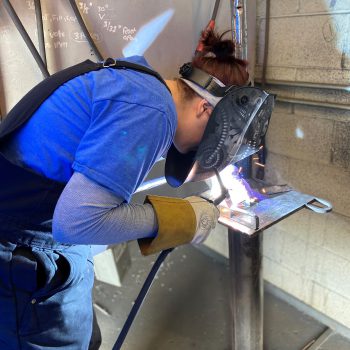In the Hot Seat with Charles Irby
In the Hot Seat – 10 Questions with Charles Irby, Arclabs Lead Welding Instructor
Name: Charles Irby
Title: Lead Welding Instructor- Nights, Arclabs welding School
Location: Charleston Branch Campus, Charleston, SC
Years in Welding: 16
“I’m just an old road-hand, and I enjoyed my time on the road, but those were just jobs. Teaching students a skill that will provide for them for a lifetime — well, this is my career.”
– Charles Irby, Lead Welding Instructor
1. When Did You Start Welding?
“I took welding classes in high school and then went on to Greenville Technical College where I earned my 2-year degree in one year. I was determined to work for the Atlantic Group, which is a nuclear station. I harassed the manager for weeks to let me take a weld test and come work for him. I literally went to his office every day. He finally got sick of me bugging him and let me take the test. I passed that nuclear weld test (combo TIG and Stick Monster* all the way out) by age 19 and started working for them welding pipe on materials like carbon, stainless, Inconel and chrome.”
* The “monster” coupon test is a 2-¾” diameter pipe with a 625” wall thickness welded in the 6G position with a TIG root and hot pass and Stick for the fill and cap.
2. Welding Experience Snapshot
Stick/TIG: “I was welding combo Stick and TIG at the nuclear station on pipe. I was also certified on 18” heavy wall Stick and TIG for work with Arc Energy, a mobile contractor for the energy industry that required 100% X-ray-quality to pass.”
MIG and Flux Cored: “When I wasn’t on the road, I worked for fabrication shops and a papermill where I MIG welded and used flux core. This type of work kept me busy until the next crisis or shutdown happened – then I was back out there.”
Automation: “I spent 5 years on the Specialty Team for the McGuire nuclear station running robots on a dry cask storage team. Spent nuclear rods were placed in a steel can and the robot welded the top of the can shut. Every weld required 100% penetration to provide a leak-tight seal.”
3. Why Did You Decide to Teach?
“I’m just an old road-hand, but I thought I might know a little something about welding. I could get a job and keeping welding … and this skill will die with me. Instead, I decided to be an instructor and share this skill with others and make the world a better place. It was one of the best decisions I ever made.”
4. Life Experiences Worth Sharing
“The hardest part of welding for a career is not the learning, or the school, or getting the degree. The hardest part is getting your foot in the door of a company and working until you earn the experience to call yourself a welder. Passing a test doesn’t make you a welder. Three or 4 years of welding, showing up on time, working hard and making sure you are making good welds every time — that makes you a welder.”
5. Teaching Challenges
“Everyone has different learning points. My challenge is to find out which way each of my students learn. Turning my welding experience and welding techniques into words or drawings is also a challenge. I’ve found that some students need more one-on-one time, and others don’t; it’s my job to figure out what they need. Truly there are so many different ways to do something. A certain technique might work for one guy, but it makes no sense to the next one. Teaching my students to study and read the puddle helps them determine which technique ‘clicks’ for them.”
6. How Do You Motivate Your Students?
“I try to relate welding to whatever is going on in their life. Welding is like life; sometimes it’s too high, too low, top fast or too slow. You can make adjustments to change your life and change the way you weld. I share my experiences from the road and try to be a positive role model, but mostly I tell them if you stay under the hood, it’ll change your life.”
7. What’s the Most Rewarding Part of Your Career at Arclabs?
“I like changing people’s lives. It makes me happy when my graduates text me and let me know that they’ve started making money. I like seeing students that came into the school with not much of a future plan graduate from here with multiple opportunities for a better life. All my students are success stories.”
“It’s also rewarding when I figure out what words or technique finally helps a student achieve a great weld. We have a curriculum that we follow, but to take that criteria and help each student find their own style is special.”
8. Experience Makes the Best Instructors
“I worked some pretty crazy jobs over the years. I worked on an emergency crew for an energy company. I kept my bag packed in my truck because I never knew when I’d get the call to hit the road. One such time was a job in the Northeast. I worked with a team of seven guys and we had seven days to fix a leak at a nuclear station or it would shutdown. That was a lot of work and a lot of stress, but we did it.”
“Working with a robot on the dry cask storage was incredibly cool. Those were serious welds and every weld needed to be perfect. It was exciting to be a part of a specialty team, and I learned a lot of new things in that position.”
9. What Should Your Students Remember?
“I want our students to know that every weld is their signature. Your weld matters. It can’t break. There are consequences for everything — if you make a bad weld, people can get hurt. Don’t miss the opportunity to better yourself. If you take a weld test and fail, keep trying and learn new techniques, but don’t quit.”
10. Teamwork
“One of our instructors here at Arclabs was my welding teacher at Greenville Tech. Now we learn from each other how to teach different students in different ways. We are a team here, each ready to try something different so we can reach each of our students.”
“I also appreciate the flexibility of Arclabs, I usually work the Night classes from 6:00 to 11:00 p.m. Some students come in early. We are happy to give them time in the booth to practice, and I’m happy to lend them a hand.”
More on our instructors
[wpu_silo links=’35’]
 877-647-4111
877-647-4111
